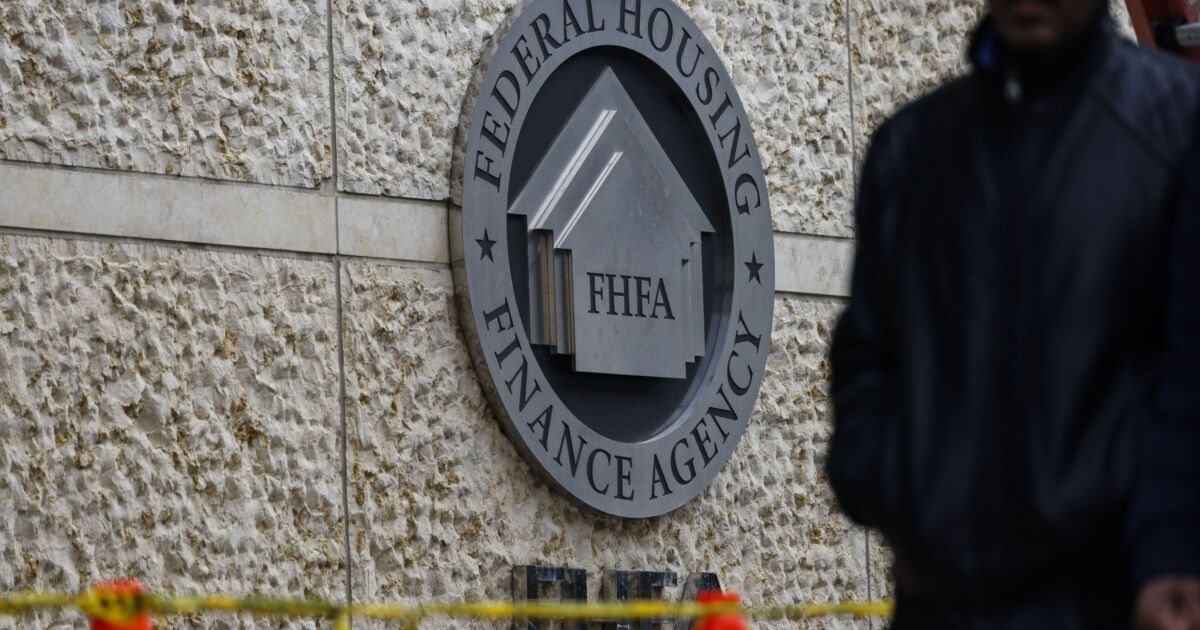
Congress must act in order to ensure the secondary mortgage market is safe, sound, and equitable, the government-sponsored enterprises regulator said
Apart from imposing capital requirements on Fannie Mae and Freddie Mac, the Federal Housing Finance Agency does not possess such authority, it noted in the report that primarily addresses
The FHFA highlighted specific issues that only Congress has the power to alter, including "changes to the Enterprises' charter acts, adjustments to their statutory business model, the nature of any government guarantee and the creation of reserves funded by Enterprise guarantee fees to be accessed in the case of losses" and other structural reforms.
A split Congress deciding on what post-conservatorship looks like for the GSEs – a difficult, long-standing issue that has bedeviled administrations of both parties – is highly unlikely during what is already
The report also comes out as both companies are undergoing a shake-up at the top.
Priscilla Almodovar, Fannie Mae's CEO,
At Freddie Mac, president Michael Hutchins
Congress and the FHFA are not the only organizations involved in coming up with plans to end the Fannie Mae and Freddie Mac conservatorships, which have spanned 15 years.
"The U.S. Department of the Treasury, which holds a significant economic interest in the Enterprises, and other Federal agencies will need to resolve a series of outstanding issues as part of the process to end the conservatorships," the report noted.
In particular, the Treasury has
At the end of the second quarter on June 30, the liquidation preference Treasury has for Fannie Mae holdings will be $203.5 billion and for Freddie Mac, $123.1 billion, according to calculations made by Bose George, an analyst at Keefe, Bruyette & Woods, in a May 5 report.
In the first quarter,
The FHFA is also asking Congress to pass legislation to change the capital rules governing the GSEs. The
"If Congress were to give FHFA the same flexibility as the federal banking regulators by amending or removing the statutory capital definitions, FHFA could streamline the capital regulation," the report said.
George made a series of calculations, based on each company's normalized earnings and including the senior preferred stock, to determine how long it would take each to raise the additional capital needed as set by the ERCF.
Fannie Mae would need to come up with an additional $117.2 billion, and at normalized annual earnings of $14.5 billion, it would take about 8.1 years to recapitalize.
Freddie Mac would need slightly less time, 7.4 years, based on the need for $92 billion in more capital and a normalized annual earnings rate of $12.5 billion.
However, the FHFA calculations, which do not take into account the senior preferred stock, put the year-end combined shortfall at $404 billion, which exceeds adjusted total risk-based capital requirements and buffers as a result of both companies' accumulated deficits.
"In the meantime, the Agency will focus on building the Enterprises' capital reserves, improving their safety and soundness, and ensuring that they continue to meet their mission obligations," the report said.
Besides the GSEs, the FHFA also regulates the Federal Home Loan Bank system. In 2023, the
"The FHLBanks maintained strong liquidity and lending capacity through the sector disruption and did not incur an advance credit loss," the report said. "However, these bank failures and the ongoing market stress highlighted
The FHFA report to Congress highlighted



